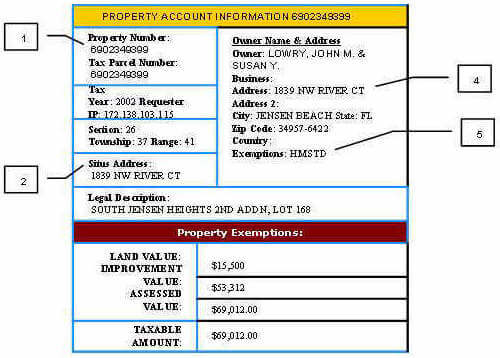All Categories
Featured
Table of Contents
Tax obligation lien investing can offer your profile direct exposure to real estate all without needing to actually have residential property. Experts, nevertheless, say the process is made complex and alert that newbie capitalists can easily obtain shed. Below's everything you require to learn about investing in a tax obligation lien certification, including just how it works and the dangers entailed.
The notification normally comes before harsher actions, such as a tax levy, where the Internal Income Service (IRS) or neighborhood or metropolitan federal governments can really take someone's property to recover the financial debt. A tax obligation lien certificate is created when a homeowner has actually stopped working to pay their taxes and the city government problems a tax lien.
Tax obligation lien certificates are typically auctioned off to capitalists seeking to earnings. To recover the overdue tax bucks, municipalities can then sell the tax obligation lien certificate to personal financiers, who care for the tax obligation costs for the right to accumulate that cash, plus rate of interest, from the residential property proprietors when they ultimately repay their equilibrium.
Real Estate Tax Lien Investments For Tax-advantaged Returns
permit the transfer or job of overdue property tax liens to the personal market, according to the National Tax Obligation Lien Association, a nonprofit that stands for governments, institutional tax obligation lien financiers and servicers. Here's what the process appears like. Tax obligation lien financiers have to bid for the certification in an auction, and how that process works depends upon the details municipality.
Get in touch with tax officials in your area to make inquiries exactly how those delinquent tax obligations are gathered. Public auctions can be online or in individual. In some cases winning quotes most likely to the investor ready to pay the cheapest rate of interest, in a technique called "bidding down the rate of interest." The town establishes a maximum rate, and the bidder offering the most affordable interest rate below that optimum wins the public auction.
The winning prospective buyer has to pay the whole tax obligation costs, including the delinquent financial obligation, interest and fines. The financier has to wait till the property owners pay back their entire equilibrium unless they do not.
While some capitalists can be awarded, others could be captured in the crossfire of challenging regulations and loopholes, which in the most awful of scenarios can result in hefty losses. From a simple revenue viewpoint, a lot of capitalists make their cash based on the tax lien's rates of interest. Interest prices differ and depend upon the jurisdiction or the state.
Profits, however, don't always amount to yields that high throughout the bidding process. In the end, the majority of tax obligation liens bought at auction are cost rates between 3 percent and 7 percent nationally, according to Brad Westover, executive supervisor of the National Tax Obligation Lien Association. Before retiring, Richard Rampell, formerly the president of Rampell & Rampell, a bookkeeping company in Hand Coastline, Florida, experienced this direct.
How To Start Tax Lien Investing
Then big institutional capitalists, including banks, hedge funds and pension plan funds, chased those higher yields in auctions around the nation. The bigger financiers assisted bid down interest rates, so Rampell's team had not been making significant cash any longer on liens.
However that seldom happens: The tax obligations are normally paid prior to the redemption date. Liens additionally are first in line for repayment, also before mortgages. Nevertheless, tax obligation liens have an expiration date, and a lienholder's right to confiscate on the residential property or to accumulate their financial investment runs out at the exact same time as the lien.
"Occasionally it's six months after the redemption duration," Musa says. "Do not think you can just acquire and ignore it." Private capitalists who are thinking about investments in tax liens should, over all, do their research. Specialists suggest avoiding homes with ecological damages, such as one where a gas terminal disposed dangerous material.
Investing In Tax Lien Certificates Online
"You should actually recognize what you're getting," states Richard Zimmerman, a partner at Berdon LLP, an accountancy company in New york city City. "Be mindful of what the residential property is, the community and values, so you do not acquire a lien that you won't have the ability to collect." Would-be capitalists should also check out the residential or commercial property and all liens versus it, as well as current tax sales and sale prices of similar buildings.
Yet, remember that the information you discover can commonly be outdated. "People get a list of properties and do their due diligence weeks prior to a sale," Musa states. "Fifty percent the homes on the listing may be gone because the taxes make money. You're wasting your time. The closer to the date you do your due persistance, the much better.
Real Estate Tax Lien Investing

Westover says 80 percent of tax lien certifications are sold to members of the NTLA, and the company can usually compare NTLA members with the appropriate institutional investors. That could make managing the procedure less complicated, especially for a novice. While tax lien investments can provide a charitable return, be mindful of the fine print, information and rules.
"However it's made complex. You have to comprehend the information." Bankrate's added to an update of this story.
Residential property tax liens are a financial investment particular niche that is overlooked by a lot of capitalists. Purchasing tax liens can be a financially rewarding though relatively danger for those that are experienced about property. When individuals or businesses stop working to pay their building tax obligations, the communities or various other government bodies that are owed those taxes place liens against the buildings.
Investing In Tax Lien Certificates
These insurance claims on collateral are additionally exchanged amongst financiers who intend to create above-average returns. With this process, the town obtains its taxes and the capitalist obtains the right to accumulate the amount due plus interest from the borrower. The process rarely ends with the investor seizing possession of the residential or commercial property.
If you require to seize, there might be various other liens against the residential property that keep you from taking possession. You can additionally spend indirectly through residential or commercial property lien funds.
It efficiently binds the residential property and prevents its sale up until the proprietor pays the taxes owed or the property is seized by the financial institution. For example, when a landowner or property owner stops working to pay the taxes on their building, the city or area in which the building lies has the authority to put a lien on the residential property.
Home with a lien connected to it can not be offered or re-financed till the tax obligations are paid and the lien is eliminated. When a lien is issued, a tax obligation lien certification is developed by the municipality that reflects the quantity owed on the building plus any interest or penalties due.

It's estimated that an added $328 billion of real estate tax was analyzed across the united state in 2021. The pattern proceeds. Taxes on single-family homes were approximated to rise approximately 3.6% in 2022, to an overall of $339.8 billion, and by 6.9% in 2023, to $363.3 billion. It's tough to evaluate across the country residential or commercial property tax obligation lien numbers.
Table of Contents
Latest Posts
Delinquent Tax
Unpaid Property Taxes Near Me
Unpaid Taxes On Homes For Sale
More
Latest Posts
Delinquent Tax
Unpaid Property Taxes Near Me
Unpaid Taxes On Homes For Sale